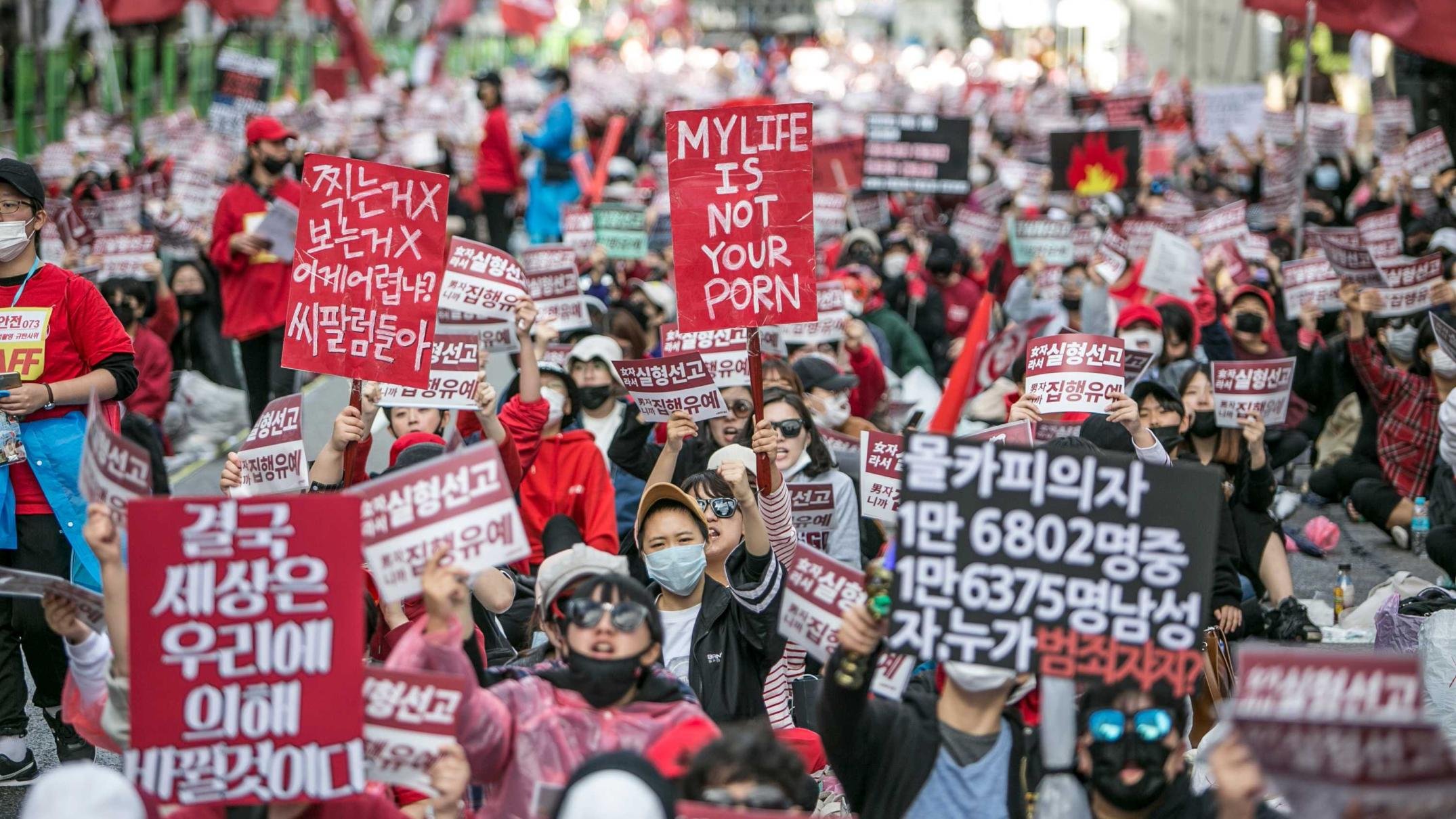The Marea Verde (Green Wave) is a feminist movement that emerged in Argentina and spread across Latin America, addressing gender-based violence (GBV), femicide, and reproductive rights. Symbolised by the green handkerchief, it achieved key victories like the legalisation of abortion in Argentina (2020), Colombia (2022), and Mexico (2023), reframing women’s safety and autonomy as central to human security. The movement has influenced international policy, driving GBV recognition in the United Nations (UN) Universal Periodic Review and shaping gender-sensitive approaches to conflict resolution, such as Colombia’s 2016 peace agreement. Despite significant opposition from conservative forces, religious institutions, and state pushback, the Marea Verde continues to grow, proving the transformative power of collective action in challenging systemic inequality and advancing a more just, inclusive future.
SOUTH KOREA’S 4B MOVEMENT: HOW PATRIARCHY UNDERMINES DEMOGRAPHIC SECURITY
Having the world’s lowest fertility rate, South Korea faces a complex demographic crisis amid an intense gender war, where marriage and childrearing have become politicized. As a response to the government’s pro-natalist policies aimed at reinforcing the country’s demographic security and an increasing economic precarity among young Koreans, radical feminists have taken a political stance against patriarchal and conservative expectations placed upon women in Korean society. Articulated around the 4B movement, they say no to sex, dating, marriage, and children, reinforcing a growing trend for Korea’s demographic future.



